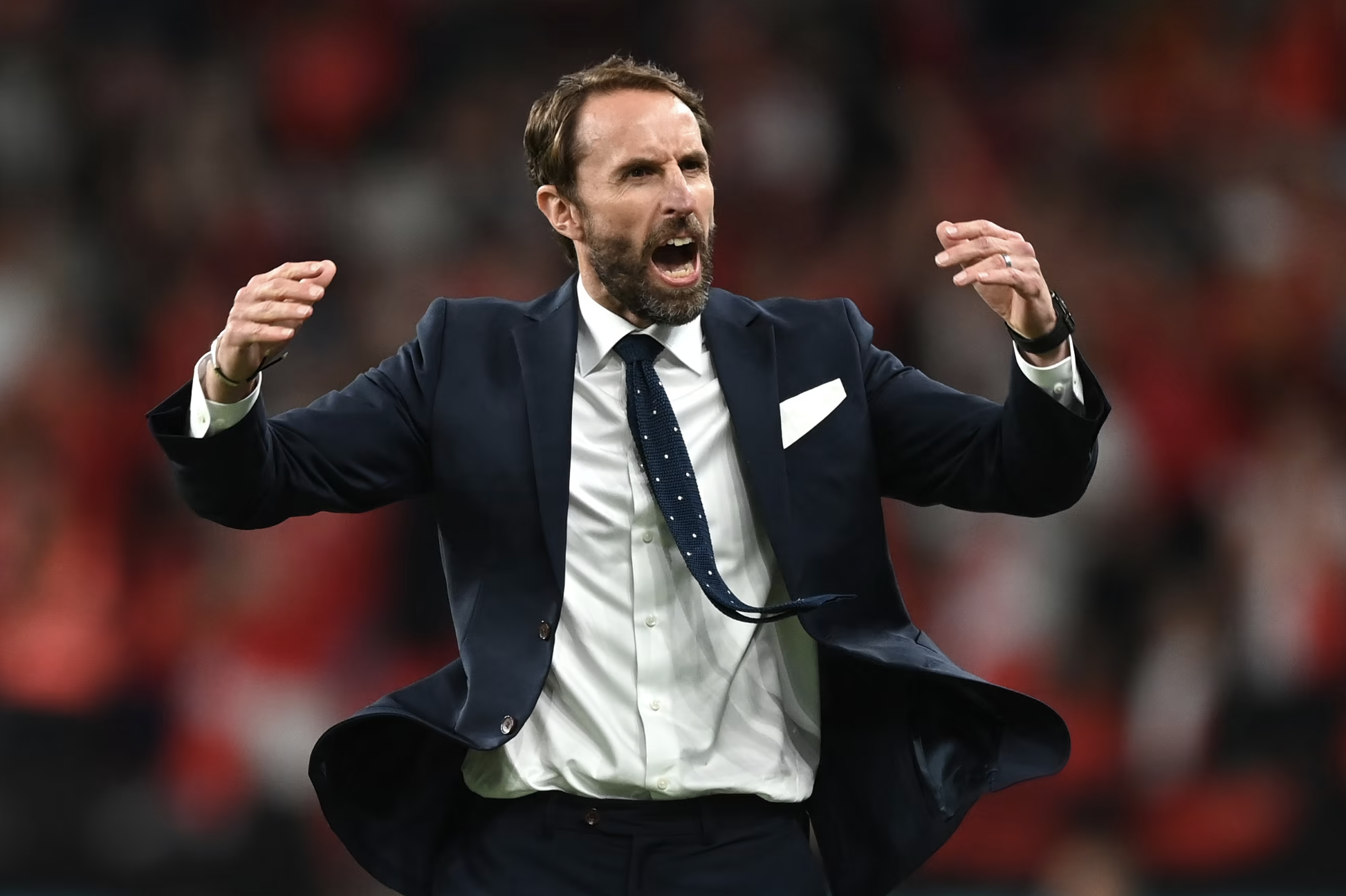-
Gareth Southgate has been speaking to FIFA+
-
England manager is aiming to improve on reaching the last four and final of the Three Lions’ two most recent tournaments
-
He chats about Nations League struggles, drawing inspiration from the Lionesses and breaking through historical barriers
Gareth Southgate loves coming into work at St George’s Park. And it’s easy to see why.
Tucked away in the quiet Staffordshire countryside, the FA’s gleaming headquarters and neatly manicured training pitches are a coach’s paradise. When he gazes around, reflecting that “we didn’t have a home until we came here”, it speaks for the enjoyment he finds amid a collaborative community of like-minded souls, all focused on English success.
But every time he arrives and salutes the St George’s Park receptionist, Southgate is greeted by images that provide a vivid reminder of his to-do list – and the item underlined at the top. England’s U-17s are splashed across the wall, the U-19s and U-20s too, and the senior women now take pride of place after this year’s spectacular UEFA Women’s EURO triumph. All of them, naturally, have trophies held aloft.
Other coaches might feel taunted and tormented by such celebratory shots. Southgate describes them as “inspiring”. He can also see that, like the women’s team before them, his side have been edging steadily closer to that elusive and long-awaited moment of glory.
It’s easy to forget that the England team he took over had just been dumped out of the EURO by Iceland after finishing bottom of their section at Brazil 2014. Since then, the Three Lions have shed their tag as perennial underperformers at major tournaments by reaching their first World Cup semi-final in 28 years and the first EURO final of their history.
The question now, of course, is how they take that next, all-important step from being on the podium to reaching its top. That issue was front and centre as Southgate sat down with FIFA+ to look ahead to Qatar 2022.

FIFA+: Gareth, before we move on to the World Cup, it’s already been a year to remember for English football thanks to the Women’s EURO success. How much did you enjoy that as part of the FA set-up and as an England fan? Gareth Southgate: Well, we know so many of the people not just in the senior team but in the junior set-up, who’ve helped those girls come through. So many people in administrative and coaching roles here were so proud and took such pleasure in what happened, and that was great to see because we knew the disappointments they’d been through, having come so close at recent tournaments. It’s also true to say that we were looking at those scenes, knowing how close we’d been the year before and thinking, ‘That’s what it would have been like if we could only have got one more goal’. But it was amazing to watch all the same.
Does it encourage you that they’d been on a similar journey to your team – improving, beginning to consistently reach the latter stages of tournament – before winning that trophy? I do think most teams that win tend to go close beforehand. If you look at the men’s game, that was definitely the case with France when you remember how close they got to winning the EURO two years before they won the World Cup. Other teams that have won over the years have also tended to reach semi-finals and finals first. It’s actually been one of the targets we’ve had here from junior level right the way through, to consistently hit semi-finals, because it’s when you get to the latter stages of tournaments that you start to learn how to win those big matches. If you keep knocking on the door, you start to win. We’re finding that to be the case at all of our age groups now.
Another aspect of England’s women’s success was the effective use of substitutes as ‘finishers’ in matches and the importance of the non-playing members in creating the right squad atmosphere. Is that something you’re taking into account for Qatar, and does it chime with your experiences of previous tournaments? It does. We’ve found in our two tournaments that several players who didn’t kick a ball were really important to the feel of the group, and I think history tells you that. Personally, I’ve played in tournaments where I’ve played every minute and I’ve been to a tournament where I didn’t kick a ball. You know those roles are different and you know what you’ve got to contribute to the team. With five substitutes now, I think the squad is even more important. That’s both in depth and just in people understanding their roles, because at set plays you can have half the team changing as the match goes on.




